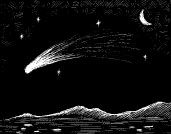From the Dean
A meteor through our sky
By John C. Baldwin, M.D.
In the last issue, I wrote about the great loss experienced by Dartmouth Medical School upon the death of former dean Marsh Tenney. It brings me much sorrow now to share word of the passing of yet another of my predecessors in the deanship. Carleton Chapman, dean from 1966 to 1973, a crucial period in the School's history, died on December 10, 2000.
Carleton was a distinguished scholar, physician, and teacher. A native of Alabama, he earned his undergraduate degree at Davidson College in North Carolina and then, as a Rhodes Scholar, studied at St. John's College at Oxford. He received his medical training at Harvard, where he also earned a master's of public health. During a distinguished career at the University of Minnesota, the University of Texas Southwestern Medical School, Dartmouth, the Commonwealth Fund, and Albert Einstein College of Medicine, Carleton made sustained and seminal contributions to medicine. An eminent cardiologist, he served as president of the American Heart Association and of the American Federation for Clinical Research. He brought special distinction to Dartmouth Medical School by being elected chair of the Association of American Medical Colleges Council of Deans.
Respected: Carleton was known and respected by people throughout the life sciences and across the country. Many times, I have seen people's faces light up as they recounted stories about him. He possessed an awesome intellect and a strong sense of the pervasive importance of science in society. Carleton was a scientist, a questioner, a tester of hypotheses, and a brave challenger of conventions. Some said that he was an iconoclast or even occasionally single-minded. He was a person who believed in doing what he thought was right, regardless of the consequences. Carl was a great favorite of my former colleague Bill Glenn, a pioneering heart surgeon at Yale; he held deep admiration for Carleton, whom he saw as a surgeon in internist's clothing because of his decisive approach to things.
 |
Carleton Chapman, I have often thought, was an Achilles-like
figure, a meteor passing boldly through the sky of his time. |
I knew Carleton largely through the American Association of Rhodes Scholars—a part of his educational experience of which he was very proud. I think in many ways he exemplified what Cecil Rhodes envisioned as the ideal recipient of his scholarships—a person of real intellect, a person of principle, a person who would make an impact broadly in society. At Dartmouth, his deanship spanned a very important time in the Medical School's history. It was during his tenure that the long-anticipated reintroduction of the M.D. program took place, after not quite 60 years (of our now 204 years!) during which the School offered a two-year, preclinical program. His bold, courageous leadership put us back in our proper place in the American academy. [See the stories on pages 3 and 56 for the details of Chapman's career and his legacy at DMS.] We at Dartmouth can also take pride in the fact that Carleton and his wife, Ruth, maintained their connections in the Upper Valley even after he left DMS. And upon his retirement, out of all the illustrious places that he had served, they chose to retire here.
It thus serves as a wonderfully fitting legacy that exactly one day before Carleton's death, when this year's Rhodes Scholars were announced, second-year DMS student Courtney Voelker was among the 32 Americans selected for that great honor. [See page 5 for more on her selection.] Of course, all of us at the Medical School are delighted for Courtney. We are also pleased to have brought honor to the entire College community by having Courtney carry the Dartmouth name onward to Oxford. I know she will have a wonderful experience there, for she is extremely intelligent as well as very curious and adaptable.
Impact: Coincidentally, I was recently interviewed by a group from Boston College conducting a study of Rhodes Scholars—what their recollection is of the experience, how they think it affected the subsequent course of their lives, and what impact they have had in society. What struck me when I was studying in the Rhodes program was the heterogeneity of the peer group. These were people with such different educational and cultural backgrounds, so many ambitions, such highly varying perspectives on learning. It was an enormously stimulating and unstructured experience, quite unlike my more rigorously defined experiences as an undergraduate at Harvard and as a medical student at Stanford. In the words of the distinguished biologist Claude L'Enfant, himself paraphrasing Vince Lombardi, we were free to "run for daylight," to pursue knowledge where we saw opportunity.
Spark: Moreover, thinking of my Oxford experience and of Carleton reminds me that as we educate medical students, as we endeavor to impart the vast body of knowledge needed to practice medicine in the 21st century, we must continually work to keep alive in them the spark, the intellectual curiosity, that brought them to the science, as well as the art of medicine. We need to make sure we do not smother the excitement of challenging conventions and of discovering new knowledge, as we teach them to be safe and good doctors. Carleton would be worried about this, as are we.
Upon his death, I wrote to all the Medical School faculty: "He was a man of action and conviction and verve. Carleton Chapman, I have often thought, was an Achilles-like figure, a meteor passing boldly through the sky of his time. We were fortunate that some of his incandescence fell on Dartmouth Medical School."
John Baldwin is vice president for health affairs of Dartmouth College and dean of DMS.
